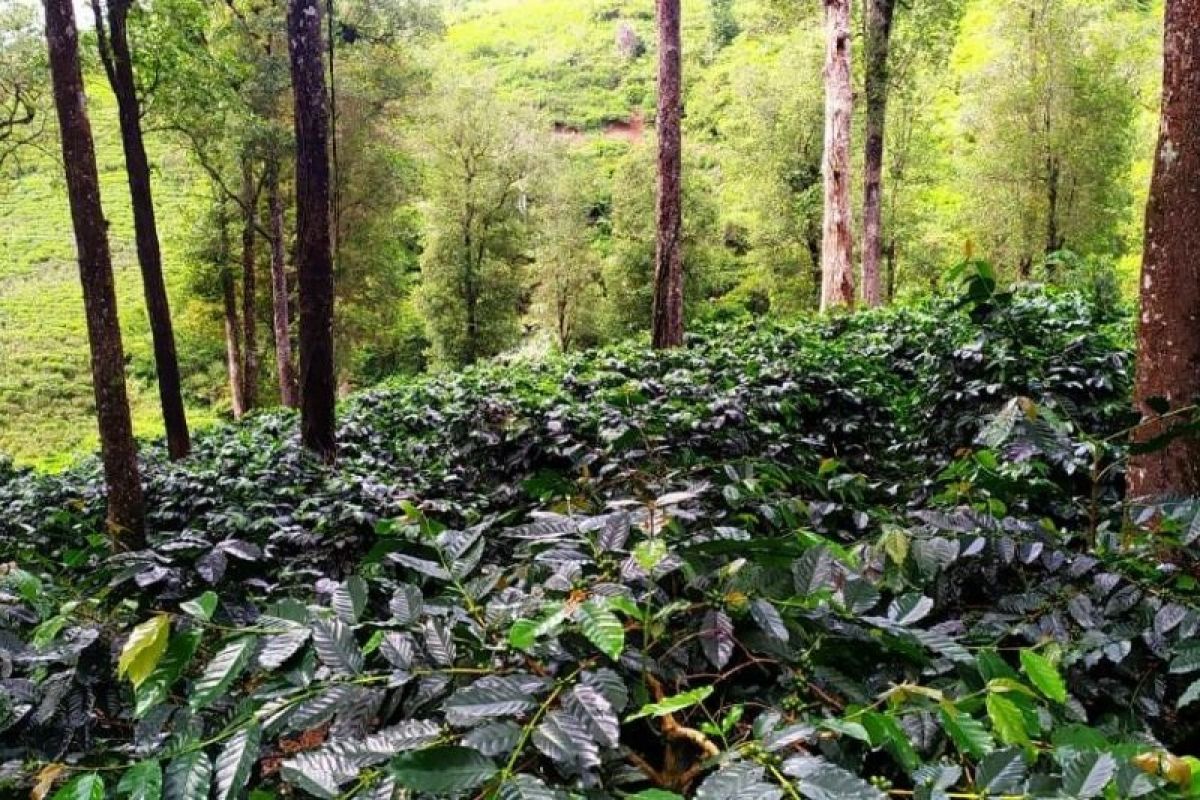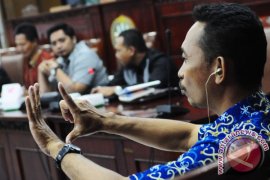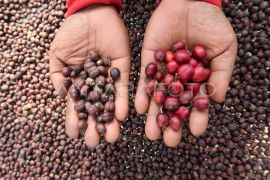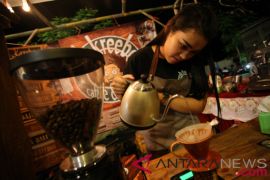Since hundreds of years, the quality of Cianjur coffee has been recognized overseasJakarta (ANTARA) - During the Dutch colonial era in Indonesia, forced labor for coffee cultivation was applied in West Java, including in Cianjur District.
During the time when the district was under the administration of its second regent, Cianjur was famous overseas as a producer of quality robusta coffee.
The abundance of quality coffee in Cianjur District made the Dutch colonial government to first build transportation routes in Indonesia in order to bring the coffee harvested from the district to other areas.
The transportation route for the distribution of Cianjur coffee was built, starting from the paving of the road to the construction of a train line from Batavia -- which is currently known as Jakarta -- to Cianjur and connected to Bandung.
At that time, most land in Cianjur District had plantations of robusta and arabica coffee, whose beans or seeds were brought by the Dutch from abroad.
During its heyday as a coffee-producing region, Cianjur was the only region in Indonesia to be able to supply three-quarters of all the coffee requirements in Europe.
Currently, the Cianjur local government, with the support of hundreds of local coffee farmers in the district, have returned to producing quality coffee beans since 2014. This effort was first initiated by Tosca Santoso, who is a pioneer of coffee cultivation in the northern part of Cianjur, particularly in Sarongge Village.
Furthermore, coffee planting in the district is conducted by Sarongge villagers along with the community in Ciputri Village, Pacet Sub-district.
The efforts made by Santoso were continued by Ayi Kahfi, another coffee cultivation pioneer in the southern part of Cianjur, specifically in Sukanagara Sub-district and four other sub-districts known as the Mount Sungging-Sukanagara coffee planting area.
The two pioneers provide guidance and teach people about conservation measures to maintain protected forests surrounding the land used by farmers to grow coffee and other fruits as supporting plants.
"Santoso and I share the same aspiration. I have learnt a lot from him, including about how to continue to develop the coffee market during the pandemic. Some 100 members of our coffee farmer group still have income during this pandemic, although it is not as much as before the pandemic," Kahfi noted while sowing coffee beans to then be handed to several independent farmer groups.
Most sub-districts in Cianjur currently grow coffee, with an average yield of over 100 tons, either in the form of fruit or coffee beans.
Kahfi, who is currently working on a 120-hectare coffee cultivation area owned by Perhutani under a community management program, expressed optimism about the popularity of Cianjur coffee being restored.
Becoming a national-level commodity for the last two years, Kahfi pointed to Cianjur coffee being sought after by coffee connoisseurs and lovers from various regions in the country and abroad.
Owner of the Kopi Dulur trademark, Addi Setiadi, who opened a coffee shop in the Cianjur Resident BLK Housing, acknowledged that since Cianjur's return as a national-scale quality coffee producer, coffee entrepreneurs from various regions in the country have begun seeking coffee beans produced by Cianjur farmers and turning it into various value-added packaged coffee products.
"The production of coffee beans and coffee powder from Cianjur is sufficient to meet the national market, and it is more than sufficient to meet the needs of local shops in Cianjur. Even before the pandemic, I got supplies of up to one ton from our local coffee farmers in the Gunung Putri-Cipanas area," he remarked.
Setiadi highlighted a revival in coffee production from farmers in various sub-districts in Cianjur and is ready to welcome back the popularity of Cianjur coffee that was fostered by the ancestors, who cultivated coffee through forced labor under the Dutch colonialism.
Moreover, the rapid emergence of coffee shops spread in the district also indicates the return to popularity of Cianjur coffee in the next few years.
Moreover, hundreds of coffee farmer groups in Cianjur are proficient in processing coffee beans in accordance with the market requirements, for instance, arabica and robusta with various flavors, such as honey and caramel as well as wine and natural aromas.
The quality of Cianjur coffee has indeed been recognized by the national market and is widely taken seriously by big buyers. However, marketing assistance from the government has not been able to improve the welfare of coffee farmers in Cianjur.
"Cianjur coffee is mostly sold outside the district since there are no big buyers here to absorb the farmers' crops. However, the risk is that many of our coffee products are claimed by big brands from outside, so it lost the identity of Cianjur coffee," Ayi Kahfi remarked.
The absence of local large-scale buyers has made Cianjur farmers sell their original coffee beans to outside areas that already have large buyers, so Cianjur, as the coffee producer, is somehow neglected. Farmers also have to give up their harvested coffee beans for being stamped with the brand of outside buyers.
In order to address this matter, the Cianjur district government plans to hold a monthly coffee festival in the district to build the Cianjur coffee branding.
According to the plan, the Cianjur pavilion will serve as a place for all local coffee entrepreneurs and farmers to promote and market their coffee under one name, Kopi Cianjur.
To this end, the Cianjur local government has targeted the end of the COVID-19 pandemic as a conducive time to start holding a monthly coffee festival in a bid to provide large-scale markets and buyers for Cianjur’s original coffee products, so that local farmers can get access to a wide and direct open market without going through a second party.
Furthermore, Cianjur District Head Herman Suherman remains committed to continuing to increase the capacity of coffee farmers in Cianjur, either through guidance from related agencies or independent farmer groups. It aims to boost coffee production in various sub-districts in Cianjur.
Moreover, the local government will encourage coffee farmers and their groups to develop the processing of various coffee products, from beans to packaging.
In addition, it will strive to provide a permanent market, so that Cianjur coffee can gain global recognition and also seek to increase the land for coffee planting in the district.
"Since hundreds of years, the quality of Cianjur coffee has been recognized overseas. We have even been a coffee supplier to Europe. The superiority of Cianjur coffee must be revived," Suherman emphasized.
Related news: Indonesian coffee draws praises from Singaporean Coffee Association
Related news: Indonesian coffee shop opens in Melbourne, Australia
Related news: West Java, South Korea to establish international coffee school
Editor: Sri Haryati
Copyright © ANTARA 2021










